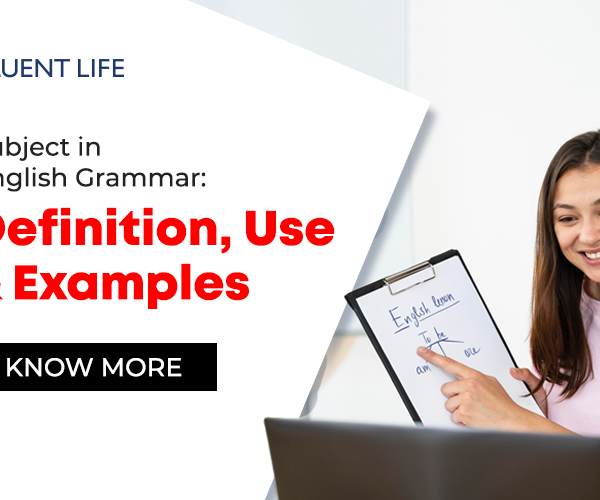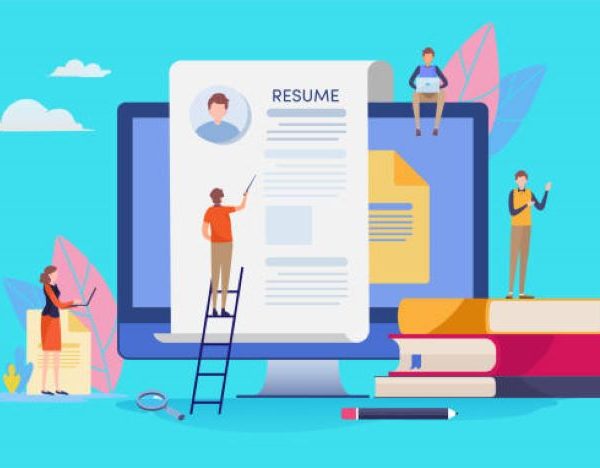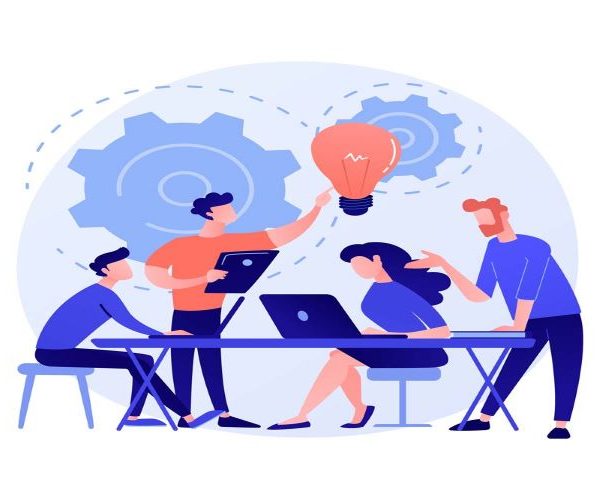
The “Tell me about yourself” or “ How would you describe yourself“ question is asked usually in the beginning of the interview so that it provides a general framework for discussion for the rest of the interview. This question gives way to other related questions.
You are actually at an advantage if asked this question during the interview. You have this wonderful opportunity to talk about your passion, your strengths, things that are important for you. A golden chance to manipulate the discussion into a domain where you know you can do well.
We touched upon how important it is to know ourselves thoroughly to perform well during an interview in the Self-Awareness post.
https://thefluentlife.com/self-awareness-a-vital-component-for-success-in-job-interviews/
In this article, we will help you understand yourself through some guided questions. To ace this open-ended question, you need to ask yourself many open-ended questions and answer them objectively. These questions are a way to explore yourself. We will do a small exercise using a model called Johari’s window which represents our levels of self-disclosure.
[table id=1 /]
Let us look at the components of the window in detail.
[table id=2 /]
These are the aspects of our personality which we need to explore.
Let us come to the most important aspect of our personality , which is
[table id=3 /]
In this article we will attempt to answer a few questions about yourself. The list of questions is exhaustive and not limited to the ones mentioned here. Our aim is to get you onboard the train of thoughts and guide it in the right direction.
These questions below will prompt you to think and to reflect on yourself. You would be surprised to discover certain things about yourself when viewed with an analytical and critical eye. You may also have to take feedback from others – your trusted friends, family, co-workers to fill in the Blind Spot area.
Our ultimate aim with this exercise is to score and plot the Johari Window based on the reflections and observations we have made about ourselves. The larger the open area, the more transparent you are to yourself.
We will then give examples on how to craft your response to the tell me about yourself question based on your discoveries.
As much as possible, be honest to yourself while responding to these questions to determine accurately whether the behavior is in line with your identity, an integral part of who you are.
TASK 1 – ASSESSING YOUR PERSONALITY
[table id=4 /] PLEASE NOTE THAT THERE IS NO RIGHT OR WRONG ANSWERS TO ANY OF THESE QUESTIONS. THE GOAL HERE IS TO IDENTIFY YOUR PERSONALITY TRAIT , UNDERSTAND PATTERNS THAT GOVERN YOUR THOUGHTS, FEELINGS AND BEHAVIOR , YOUR EMOTIONAL STRUCTURE – ALL OF WHICH HAVE A HUGE IMPACT ON IMPORTANT LIFE OUTCOMES.Now that we have a good idea about the kind of personality we possess, let us move to other questions which can be answered both my experienced professionals and freshers alike. Just because you are right out of college and do not have experience does not mean you cannot answer these questions. Infact, this is the best time in life you should be looking at what you want to steer your career in the right directions. So, go for it!!
Task 2 – Best Fit = fn ( Individual Personality + Work Environment)
This exercise is to find a match between your personality and the work environment you best fit in.
We spend most of our waking hours at work, with our colleagues and customers/ clients. A very important question you need to ask yourself – How would my 9 am to 5 pm look like?
- a) Do I like an environment that is face paced and structured or would I be happier if I do not have to work under strict timelines but systems are highly unstructured?
- b) Will be most comfortable working in a large company or am I at my best if the company is small
- c) Do I like a causal environment (Sneakers everyday) or a more formal one? Yes, what employees wear talk a lot about the culture the company has
Task 3 – YOUR SKILL INVENTORY
This may not be as simple as it sounds. The skill inventory that you make for yourself should not only include your core, technical skills but also your soft skills. Now this is an area where you need to ask yourself. Am I an extrovert? If I am one, am I just comfortable talking to people who I am familiar with. A big crowd gives me the jitters? It is a good idea to rate your skills. If I see my career in marketing, I would rate myself from 1 to 5 ( 1 being the highest ) on these various parameters
[table id=6 /]
[table id=7 /]
Task 4 – VALUES YOU UPHOLD
The values and beliefs that you have, have a direct co-relation to the work culture that you would be most comfortable in. We did a little exercise in Task # 2 about the work environment. So, your question may be what the difference between Work Culture and Work environment is. The unwritten rules that form a part of the work culture define the work environment. So, it is all inter-related.
Let’s say Ritin a software engineer is always on the lookout for developing his technical skills. He has a lot of opportunity in his job front to improve it. Ritin thinks that taking certifications will help him grow and also do better in his job. There is a company policy against reimbursing the employee for certifications he makes out of his choice. What does this say about the company culture? Ritin may feel its unfair but another employee Anand may not seem too bothered about it. Anand may be keener on getting his work-life balance right. A movie night at office seems more fun for him.
Ask yourself – Do you love being creative around your work- thinking out of the box? Do you like taking risks? Are you an independent thinker? Or do you need opinion of a whole lot of people? Does the term flexible working hours entice you?
[table id=8 /]
Task 5 – YOUR ACHIEVEMENTS
Now this is something probably you will have at the tip of your fingertips. Some important aspects you need to consider while making a list
- Think of examples which support your accomplishment. For ex – I was instrumental in organizing a fund-raising event for which we raised around Rs 3,00,000/-
- Go back to your skill inventory. Think of situations where you used your skill and brought about a positive difference. For ex – I had to negotiate with a very difficult and demanding client. I not only managed to close the deal but I was also successful in building a very strong relationship with them.
- Support facts with numbers and figures. Always, always try and do this. Gives more credibility to what you are saying. And be sure of the numbers and facts you are providing. Example –Delivered industry-leading software that saved clients millions of dollars, shortened processes from weeks to minutes, captured #1 market share and generated up to $21M in annual revenues within year one of launch
- Do not restrict to achievements that are just task oriented. There may be a time when you were given more responsibility in the team. It can probably be as simple as organizing an offsite. You are probably good at coordinating and facilitating.
- Achievements also mean accomplishments that you have had as a team. I am very proud of the fact that my team achieved 100% targets well before the deadline – shows that you know the importance of “We” over “I”
- For freshers who have not come across real time work experience, when you look for a job they really do not expect you to have come across challenging situations obviously. Here, the effort is to understand yourself better. Using the P-A-R approach will help you dissect your lives achievements.
P- Problem or a challenge you faced
A- Action that you took to solve the problem
R- Result of the action that you took
For ex – I worked on a project during my internship on new ways of improving speed and efficiency of conveyor belts while reducing energy consumption. We were successful in reducing power consumption by 5% .
[table id=9 /]
Task 6 – YOUR EMOTIONAL TRIGGERS !
What gets you angry? What irritates you the most? What is that you fear the most?
Identifying the trigger points that leads to you having any extreme emotions are important not only in discovering your feelings about also will help you in controlling and regulating them. Having a strong will power and ability to have Self-Control is considered a very vital skill. For instance – You look for perfection in the PowerPoint that is sent by your team. Any small error, even in spacing or formatting gets you upset. If you aware of this emotional trigger, you can be aware of your feelings and choose not to react to it and concentrate on more important data on the presentation
[table id=11 /]
Task 7- YOUR PASSION
What drives you?
What motivates you?
Please note that you need to limit your passion to work. It can and should go beyond what you do on a 9 to 5 basis. If you have not found that one thing that you love doing, go explore. It will definitely help you have a better understanding of yourself and also give you a high sense of emotional well-being. It will also be an avenue for you to socialize and network with industry professionals.
[table id=12 /]
Task 8 – YOUR CAREER GOAL
Where do you see yourself in 5 years ? As a manager or a senior manager are not the kind of responses you should be telling yourself. Know what you are getting into if you are a fresher and if you already are experienced, do a thorough research on the career option that you have chosen. Make an in-depth study and research on the industry or technology that is related to your career. It is a good idea to Subscribe to magazines that is related to your field of occupation. Start following articles of well-experienced, reputed professionals on LinkedIn
[table id=13 /]
Task 9- YOUR IDEAL JOB…
This is in a way related to what you love doing now and what will keep you more than happy 5 years down the line. Once you know your long-term career aspirations you will be able to expand this answer In a way that sounds realistic and goal-oriented. Thinking on these lines will help – I love to get a deep understanding of a subject and becoming a Subject Matter expert In a way that I can wow the client. Eventually, I want to pick Big Data Analytics and specialize in it. I am curious about how Hadoop work. I would want to work more on this technology.
[table id=14 /]
TASK 10 – YOUR DEVELOPMENTAL GOALS
This should be in line with your career goal and aspiration. Taking a certification in Hadoop or aiming to land a job which gives you exposure to Hadoop may be a good step to begin with.
[table id=15 /]
Task 12: HOW OTHERS VIEW YOU?
Remember the Blind Spot in Johari’s window?
The only way to know about yourself to which you are blinded, is from getting feedback. Keep it informal and Choose a good mix of people – some from your work place, your friend, your relative, your mom. This gives you an overall perspective of how others view you. It may go to the extent of building a damaged relationship with your cousin or friend.
[table id=17 /]
As you may have realized by now, most of these tasks are interrelated. Having said that, there are high chances that each of these questions will help you discover newer aspects about yourself. Give yourself some time and happy exploring!
Our next step is to develop our interview response and it is a guarantee that once you are done with this exercise you will find a whole new way of answering the regular questions.





